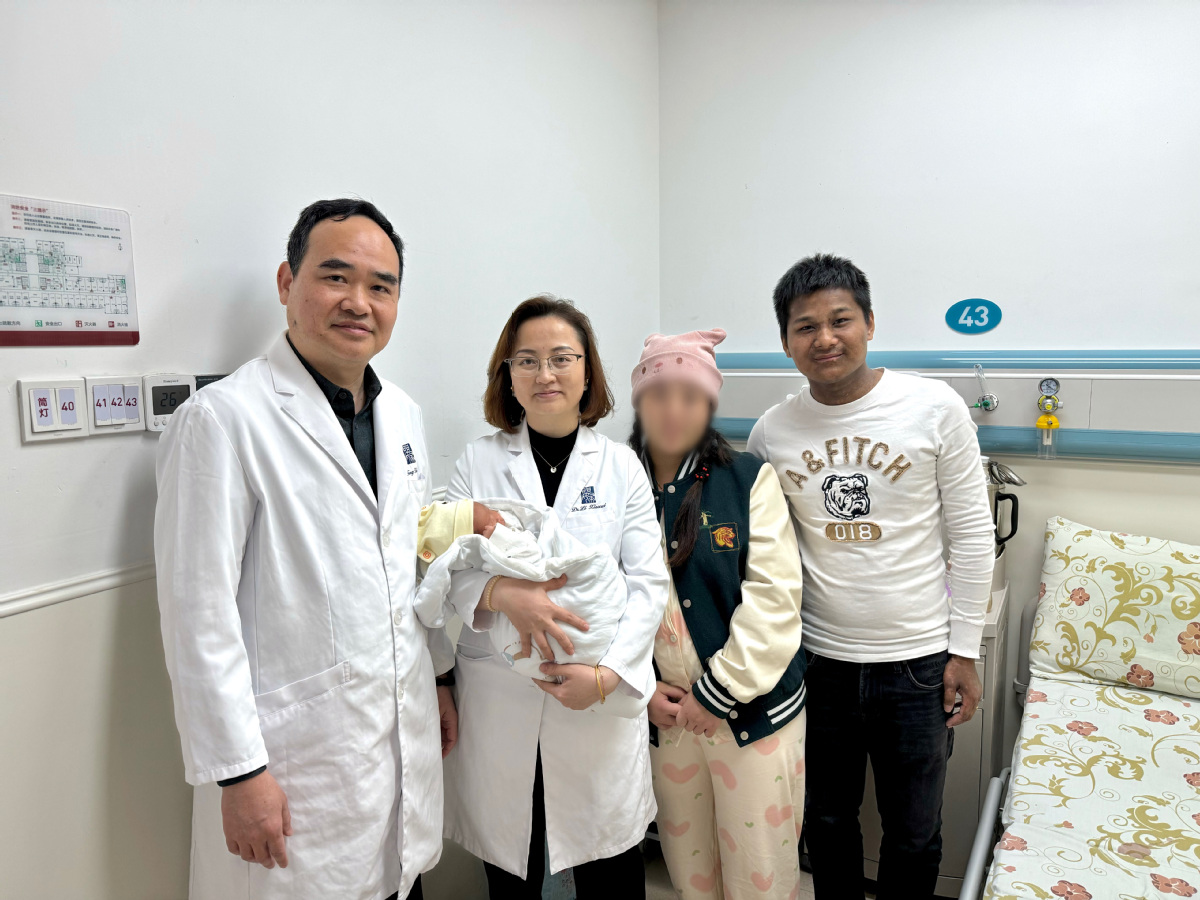World's first IVF child blocking KIT gene-related diseases born in Shanghai


The world's first IVF child that successfully blocked the passing down of KIT gene-related rare pigmentation and gastrointestinal stromal tumor through PGT technology, commonly known as the third-generation IVF, was born on December 14 at the Shanghai First Maternity and Infant Hospital, the medical institution said at a press briefing on Monday.
The baby girl has fair skin and genetic testing of the cord blood showed that the infant did not carry her father's disease-causing mutation, which leads to his extraordinarily dark skin color.
Black spots began to grow on the body of the father, who is from Hubei province and wanted to be identified as Haideng when he was only 1 year old. As he aged, dark spots spread at a rapid rate on his face, limbs, and body. He confessed that he suffered heavy mental pressure in his childhood and teenage years.
In the summer of 2022, Haideng, who was then 29, went to the hospital for complete gene testing and genetic consultation together with his wife after postponing the plan to start a family for a while. Haideng was found to carry a mutation in the KIT gene.
Subsequent examinations found that Haideng's father also carried the mutation and he, who also has dark skin, suffered from gastrointestinal stromal tumor and underwent surgery five years ago.
Doctors reminded that Haideng and his wife will stand a 50 percent chance of having a baby with pigmentation and that the baby is at high risk of developing gastrointestinal stromal tumors in the future if they choose to conceive naturally. The couple decided the resort to PGT to prevent such health risks for the baby.
- Archives detailing crimes of Japanese unit released
- 'Reservoirs of primordial water' may be buried deep within Earth
- China remembers victims of Nanjing Massacre, 88 years on
- China launches carrier rocket to deploy experimental cargo ship and satellite
- Relic dates Jinan founding to around 4,200 years ago
- New rocket set to debut soon, launch six satellites




































